
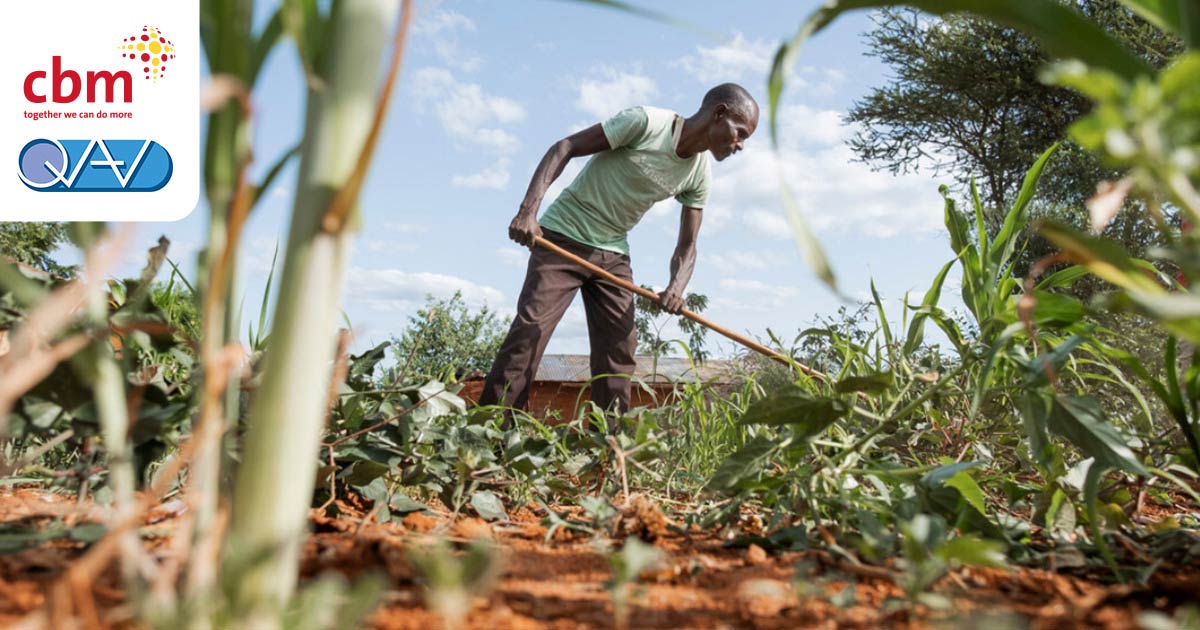
Kenya is experiencing its worst drought in over 40 years. Families are facing severe food and water shortages – and people with disabilities are among those at greatest risk. CBM UK is partnering with Kenya Red Cross to provide emergency support to some of the most vulnerable families.
In this blog, people with disabilities share their experiences and talk about the impact of this humanitarian crisis on their lives.
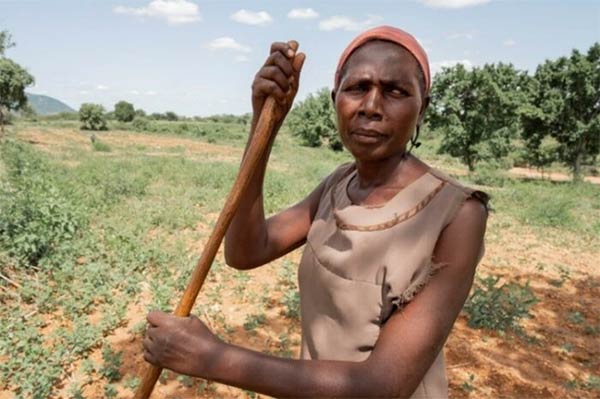
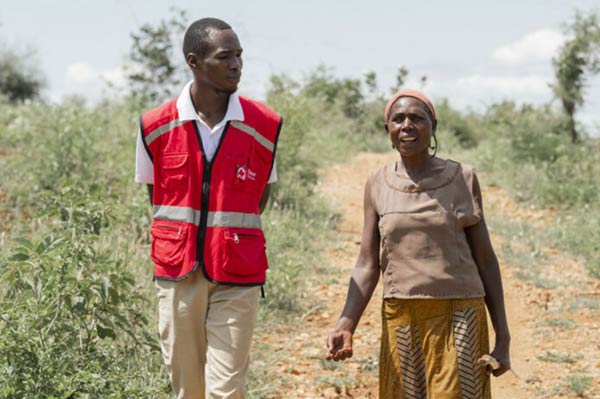
Sofia is a casual labourer who supports herself by working on other people’s farms. She also has a few crops of her own – mung beans and black-eyed peas. Life is challenging for Sofia, who is a mother of five children, as she has a physical disability. “It is such a challenge to do farm work because of my leg, even walking can be a challenge”, she explains.
But the drought has made things much worse. The crops in her community failed as the rains arrived late, and then lasted just one week. Her own plants are on the verge of failing and there is little farm work available on others’ land.
“We planted when the rain came, then it stopped raining. We don’t know what is happening. The last time we had a good harvest was the year before COVID.”
“The crops are drying up. The farmers don’t want to waste their resources as there will be nothing to harvest.”
“I can’t carry water myself. I rely on my children to go look for water”.
The drought has meant that the family have been missing one or two meals a day, and has so far survived by borrowing food from neighbours. But some days, there is nothing to be shared.
“If the drought continues, it will be very hard for our community. It will be indescribable.”
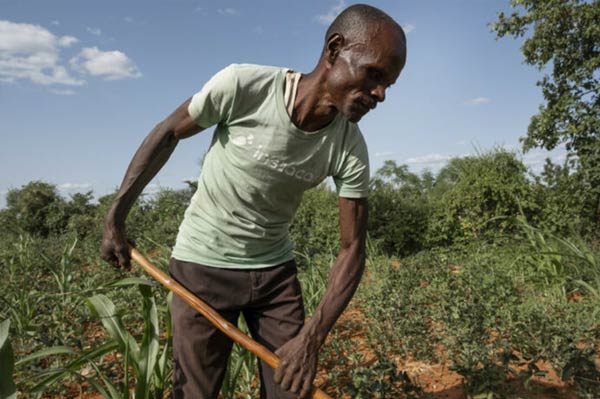
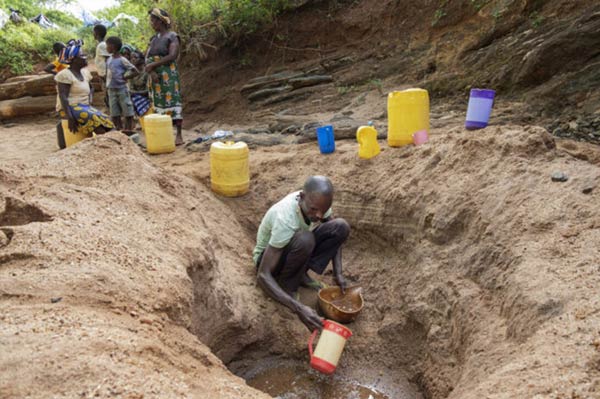
It should be the rainy season, but Julius, who is blind in one eye due to an accident as a child, is desperately looking for water for his family. A meter-deep hand dug well in the bottom of the riverbed reveals a shallow pool of water, which Julius carefully scoops into yellow jerrycans using a gourd ladle.
“For me, everything depends on if it rains or not,” says Julius, who farms sorghum and lentils to provide for his family.
“The rains were anticipated to begin on April 28. It rained on April 28 but since then – nothing substantial. There is a difference between here and other parts of the county,” explains Julius.
Tharaka-Nithi County contains the lush highland slopes of Mount Kenya but also semi-arid lowlands, where Julius lives with his wife Katherine and six children.
“There is nothing we can do about it. It depends on God… I heard that the local government gave out some food, but only to a few households. I haven’t received any assistance”
The family has one kilogram – about three meals worth – of black-eyed peas safely stashed away. Julius’ wants to keep his children enrolled in school, where they receive lunch, but without an income from farming, there has been no money for school fees. “It’s frustrating, as a parent. I have to go and talk to the head teacher and ask them if my children can stay on until I find the money.”
Julius’ priorities are to get food, pay school fees and if there is anything left over, lease a piece of farm land. “Even during a drought you have to try.”
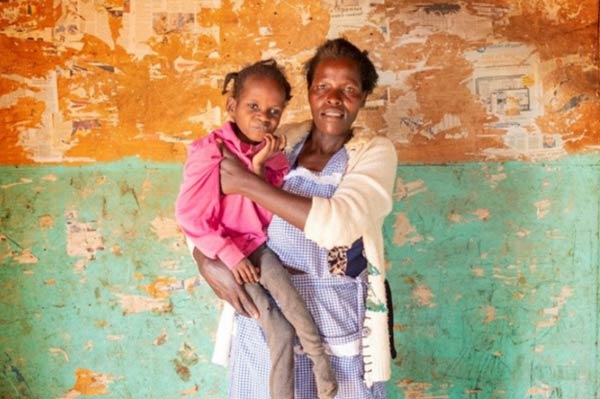
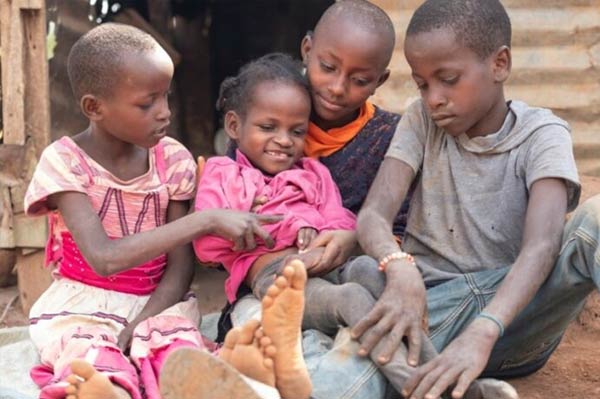
Cecilia, 43, is the sole breadwinner for her family of six. Her second youngest child, Risper, is deaf-blind. The 10-year-old had meningitis as an infant and lost her vision and hearing as a result.
“Risper is entirely dependent on me”, explains Cecilia. Until she recently joined a local Organisation of Persons with Disabilities (OPD), Cecilia had never had any information about how to meet her daughter’s needs. “It is not easy to raise a child who cannot see or talk… I am not sure how to manage this situation”.
The local OPD is part of a CBM-supported project implemented by the Diocese of Meru. It has been an important source of support – both practical and emotional – and information for Cecilia: “I’ve benefitted a lot from the group”.
Years of malnutrition have left their mark on Risper, who is much smaller than others her age and can’t move around on her own. Through the OPD, she now receives fortified porridge to address her malnutrition and has been referred for physiotherapy and assistive devices, such as a standing frame. Cecilia has already noticed a difference: “She was weak and feeble, now she will be stronger and probably walk.”
But Cecilia fears that this progress is now threatened by the drought. A half-acre of beans whose seeds were procured through the OPD are now wilted and yellow, dying on the hillside next to Cecilia’s small house. “Even if it rains now there is not much we can salvage – the crops are gone. It’s only fodder for livestock.”
CBM is partnering with Kenya Red Cross to provide families like these with emergency support so they can continue to access food and water. Thanks to this support, Sofia, Julius and Cecilia can feed their families and ensure that their children remain enrolled in school.